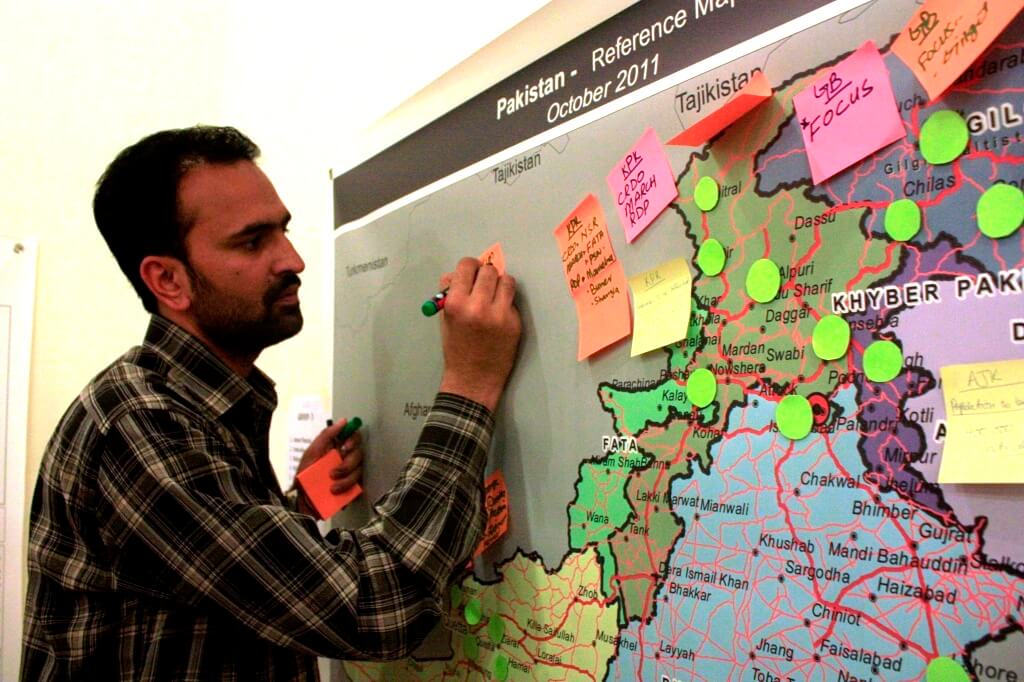Today International Development Secretary Justine Greening will announce the UK Department for International Development (DFID) support for two key Start Network programmes: the Start Fund and Start Build. Download the press release here.
The Start Fund
The Start Fund is a multi-donor pooled fund that provides fast and direct funding to NGOs for ‘under the radar’ crises. The Start Fund complements existing humanitarian financing mechanisms, but it is unique in that it is collectively owned and operated by the Start Network NGOs on behalf of the wider civil society sector. Stringent accountability mechanisms help ensure funds are used according to need and spent as intended.
The Start Fund is designed for:
- Response to small scale emergencies that often receive little funding, either because they fall between existing financing mechanisms or because they do not attract sufficient media attention. The UN reports that the accumulated global impact of small-scale, frequent hazards equals (and in many countries exceeds) that from major headline-grabbing disasters.
- Early response to slow-onset crises to protect at-risk communities. All too often these situations do not receive attention or funding until many lives have already been lost.
- Fast response to small to medium rapid-onset crises where agencies on the ground need to act quickly.
DFID’s contribution of up to £30 million over 3 years will enable the Start Fund to save the lives, alleviate the suffering and protect the dignity of more than 8 million people affected by disasters. It is hoped that this donation, along with a contribution from Irish Aid, will help to leverage further support from other government donors to protect many more communities.
Mark Bulpitt, Head of Humanitarian & Resilience at World Vision UK, and Chair of the Start Network Board, said:
“The Start Fund is a global-first initiative. It gives civil society immediate access to funding, which otherwise may not be available, to provide life-saving materials, such as blankets and shelter, to families and communities affected by crises. Decisions to release funding use evidence of need from communities themselves, are made within 3 days of receiving this evidence and are based upon clear work plans. The DFID supported Start Fund doesn't just help prevent death and suffering but also helps communities to remain strong to face future crises.”
Start Build
DFID will announce that it will contribute up to £26 million to the Start Network through the Start Build portfolio over three years, as part of its Disasters and Emergencies Preparedness Programme.
In complementarity with the work of the Start Fund, Start Build aims to strengthen the capacity of civil society in order to meet the increasing humanitarian challenges of the 21st century. Civil society carries out the overwhelming majority of emergency response work, yet it is consistently under-resourced and poorly supported within the humanitarian sector. The injection of cash from DFID will enable Start Build to support civil society organisations to respond faster and more effectively in response to a crisis.
The current Start Build portfolio was constructed using peer review. Projects were identified for their transformative potential and their ability to contribute toward a body of evidence on decentralising capacity building.
The portfolio approach is about supporting a more local, more prepared system with more resources. The approach prioritises:
i) The creation of platforms and consortia
ii) The facilitation of connections between local, regional and global levels
iii) Capturing and sharing of learning and evidence
iv) Catalysing skills, behaviour and culture change within individuals, organisations and systems
Frances Stevenson, Head of Emergencies at HelpAge International, who is co-leading the Age & Disability component of the Start Build portfolio, said:
“Start Build is going to make a real difference to the capability of organisations that respond to crises and disasters. As a result of the Start Build programme, civil society organisations at local, national and international levels will be more ready and able to respond in a timely and effective way, and more capable of meeting the needs of the most vulnerable people such as children, older people and people with disabilities.”
Sonya Ruparel, from ActionAid International’s Humanitarian Action and Resilience Team said:
“We are very excited to see Start agencies and DFID making such a significant commitment to building the capacity of organisations and systems at more national and regional levels. We are looking forward to seeing the contributions that Start Build will make towards enabling local and national organisations to have a stronger role in delivering effective humanitarian response.”
1 The estimated number of beneficiaries has been based on the evidence gained from the CBHA pilot ERF in which a £4 million donation from DFID enabled CBHA members to reach 1,073,174 people.

